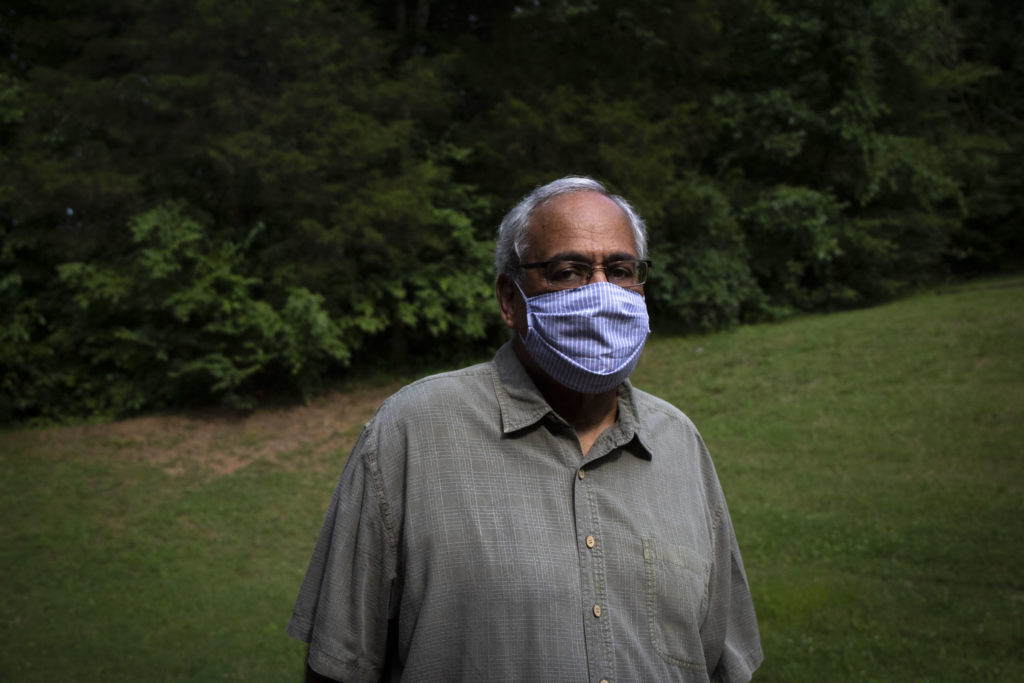
Howard Gentry has been a bank official, a Metro councilmember, and the first Black vice mayor in Nashville.
His family moved to Nashville in 1949 and have left their legacy in just about every realm of public life including education, sports and local government since their arrival.
But despite Gentry’s prominent roles, he’s experienced racism that no amount of money or fame could allow a Black person to escape. In this installment of our series Breaking Points, he says the current Black Lives Matter movement reminds him of a movement he witnessed up close in 1968. Listen to Gentry’s conversation above, or read interview highlights — and some extras — below.
From anger to preparation
They killed Martin Luther King. That’s all it took. I slipped out of the school and went up to Jefferson Street and threw a rock or two. I started feeling bad because we were burning up — I didn’t do it, but we were burning up our own businesses. And it didn’t make sense to me. So I went back to school.
But I told my dad. He said, “We’ve already been through a fire and the doors are being opened now by the movement.” He said, “You need to prepare yourself to walk through those doors.”
When they saw the civil rights movement and saw the power of that movement, they knew that this is the time. Time’s going to change. That’s what I’m feeling right now about the movement that’s taking place right now. They believed it and they started preparing us, because all of them would not be able to take advantage of the new day. They prepared us to not stay in the moment, but to be able to move forward so we could keep forging forward for our children.
Facing resistance while in power
Integrating programs and being the “first Black” was something we did. When I ran for councilman-at-large, they said no African American had ever won, and so I figured that’s why I should run.
I was vice mayor, and one of my council members who was giving me a hard time — we were having a problem, and I just couldn’t figure out why. I had never done anything to him. And he just told me, “I’ve just never had a Black man tell me what to do.” I mean, you know, you’re getting it in your face, but you’re getting it in 2000. You’re not getting it in 1952 or ’62 or ’72 or ’82 or even ’92. You’re getting it in doggone 2000. Early 2000s, but come on. Is this really happening?
Processing the Black Lives Matter movement
The current Black Lives Matter movement has wrecked me emotionally because I’m seeing and experiencing the same things I experienced 50, 60 years ago. I’m seeing discrimination. I’m seeing Black lives devalued.
This is an opportunity as a nation to allow Black lives to matter. I don’t like people to tell me that they’re color blind because it scares me. I want you to see me. I want you to see my color. I see yours, and that doesn’t change anything with me. So I know what you mean when you tell me you’re color blind, but I don’t want you to be color blind. I want you to see me as a Black man and still treat me as a person.
Black Lives Matter and COVID-19
Gentry was diagnosed with COVID-19 in June and has been working to recover from the impact the virus has had on his body.
I do see a correlation between how the Black Lives Matter movement and pandemic is being handled. I see that there really is no over-the-top efforts to come into the impoverished areas and change the effect of the COVID virus on these communities. You have to drop that effort right in the midst of people who don’t have the wraparound services and the support services that they need to be able to be cared for.
The percentage of African Americans and people of color dying compared to the white race — the numbers don’t lie.
In Nashville, we have put mechanisms in place within the Black community and also the underserved community to target those in need. But even in Nashville, that’s not enough, because right now, you have to go to them, instead of it coming to you. Meharry’s a good location (for COVID-19 testing). I’m not knocking Meharry. The stadium is not even a bad location. But if you really want to provide equity in health care, you have to come to the communities and set up in the communities because people don’t have transportation. A lot of the people suffering with COVID virus are too sick to even walk to Meharry or to the stadium.

